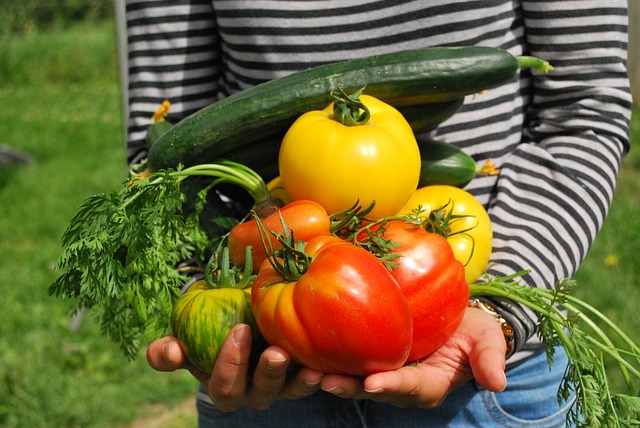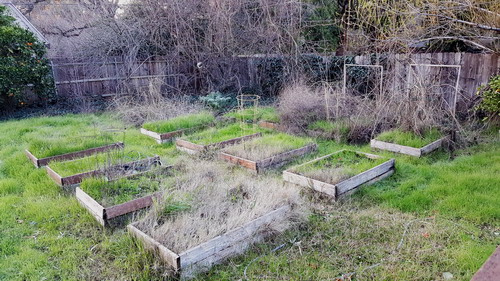
Spring is coming and I have been eyeballing the garden beds in my backyard and thinking about what I want to do this year. Last year I hardly did anything. I was just too busy with other stuff to put in the time to really prepare and plant much of a garden. I have gotten discouraged by the invasion of crabgrass into my beds. For a couple of years I would literally dig out half of the raised bed to get the crabgrass roots out, and by the end of the season they would all be back again.
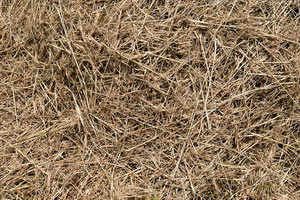
It was with this chore on my mind that a youtube video on gardening without weeding caught my eye. This method was called the Ruth Stout method of gardening. She was well known many years ago for her teachings on no-work gardening. She developed her techniques back in the 30’s and 40’s and wrote several books on the subject. This sounds like a dream. Why have I never heard of this method?
The basic idea is to cover the area you want to plant with about six inches of spoiled hay or straw. You do not turn the soil at all. You do not do any weeding or anything. The idea is to smother the weeds with the hay and then let the hay rot in place forming a luxurious topsoil. After a few months you put on a second layer of hay and leave the whole mess alone until spring planting time. As you can already see, I have missed the appropriate time window to engage this method. I should have laid down my first layer of hay back in October and the second layer around Christmas time.
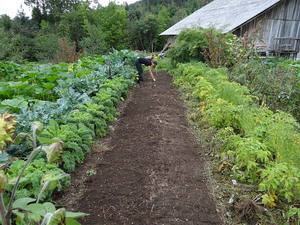
When it comes time to plant, you simply spread open the hay and toss in your planting tubers, bulbs, and seeds. Cover everything back up and leave it alone. In most parts of the country you don’t even need to water this type of garden. The hay protects the plants from frost and keeps the moisture in the soil. We don’t get much in the way of summer rain here in Sacramento, so I suspect I will have to do some watering should I try this method.
The first question I have to ask is “Why plant a garden?” This is a very reasonable question here in the Sacramento valley. We have lots of small vegetable farms that service the local farmer’s markets available to us. This is not as commonly available in many parts of the US. So why go to all the work? There are many possible answers to this question, so see if any of these attracts you.
- Getting out in the fresh air and connecting to the earth significantly reduces stress and improves health.
- Creating your own food builds a sense of independence and self value.
- Gardening is a great way to connect with other like minded folks.
- Gardening saves you money.
- Gardening gives you access to many varieties of vegetables you can not get commercially.
- Gardening allows you to inflict / gift others with loads of zucchini and cucumbers.
- Gardening gives you tons of great photo opportunities to fill your Instagram and Facebook feeds.
- There is nothing like being able to just walk out into your garden and pick a sun warmed tomato right off the vine and eat it.
- Similarly there is nothing like stepping outside for a few minutes and picking a fresh salad for dinner without having to go to the store or wait for the weekend farmer’s market.
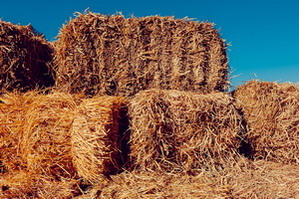
As I mentioned earlier, the time is too late to start a Ruth Stout garden this year, but as I was doing research for this article, I came across what looks like a variation of this method that can be prepared in much less time, but is a little more work – straw bale gardening. Much like the Ruth Stout method, the straw bale method involves planting your tubers, bulbs, and seeds into straw. The big difference here is that you keep the straw bales bound up into the bale and add water and some source of nitrogen to the bales daily for a couple weeks. This triggers the bales to heat up and compost super fast. In short order you can plant your veggies right into the straw bales. A complication I thought of however is can I find straw that is not loaded with glyphosate (Roundup)? Most crops that produce straw are sprayed with the stuff a few days before harvest in order to dry out the plants before harvest. When I asked the feed store closest to me about this they said they had no idea if their hay was doused with glyphosate. They just get their hay from wherever they can.
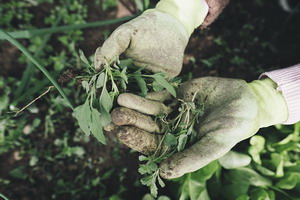
I am thinking that I could put bales of straw right on top of my existing raised beds and get this process rolling without too much trouble. The big bonus to trying this is that by the end of the growing season, my beds are already set up to do a Ruth Stout garden. The real trick is will this stop that darned crabgrass? I like having a garden, but I have always hated weeding. My mother seems to love it, and spends hours a day in her garden keeping those weeds at bay. At 89 years old she now spends lots of time at the dermatologist’s office having skin cancers burned and cut off of her face and arms. Some sun each day is essential for health, but too much of a good thing tends to become a problem. This is especially true for us super white-skin folks. The only sun protective pigment we have is in the form of freckles.
This sounds like another adventure about to happen. We shall wait to see what the next chapter brings.
